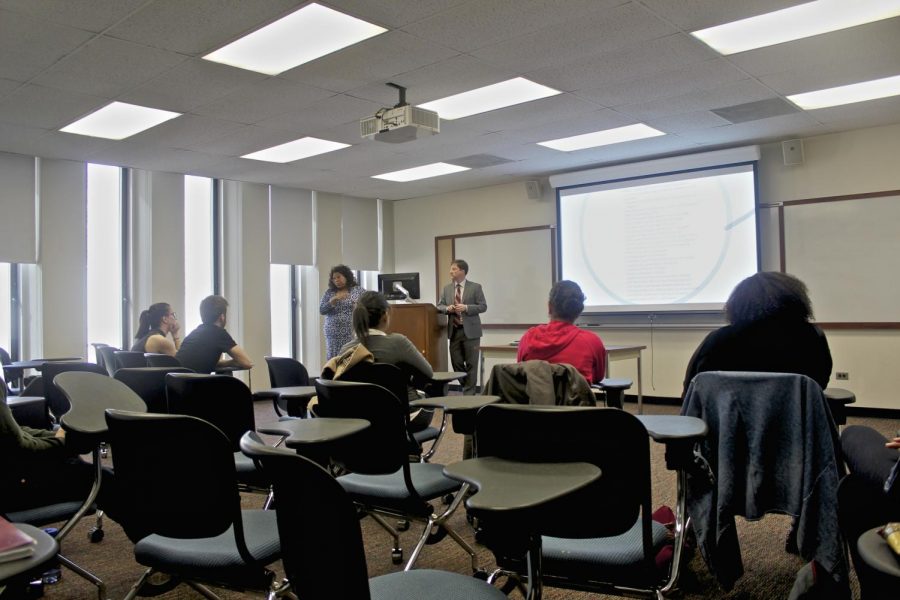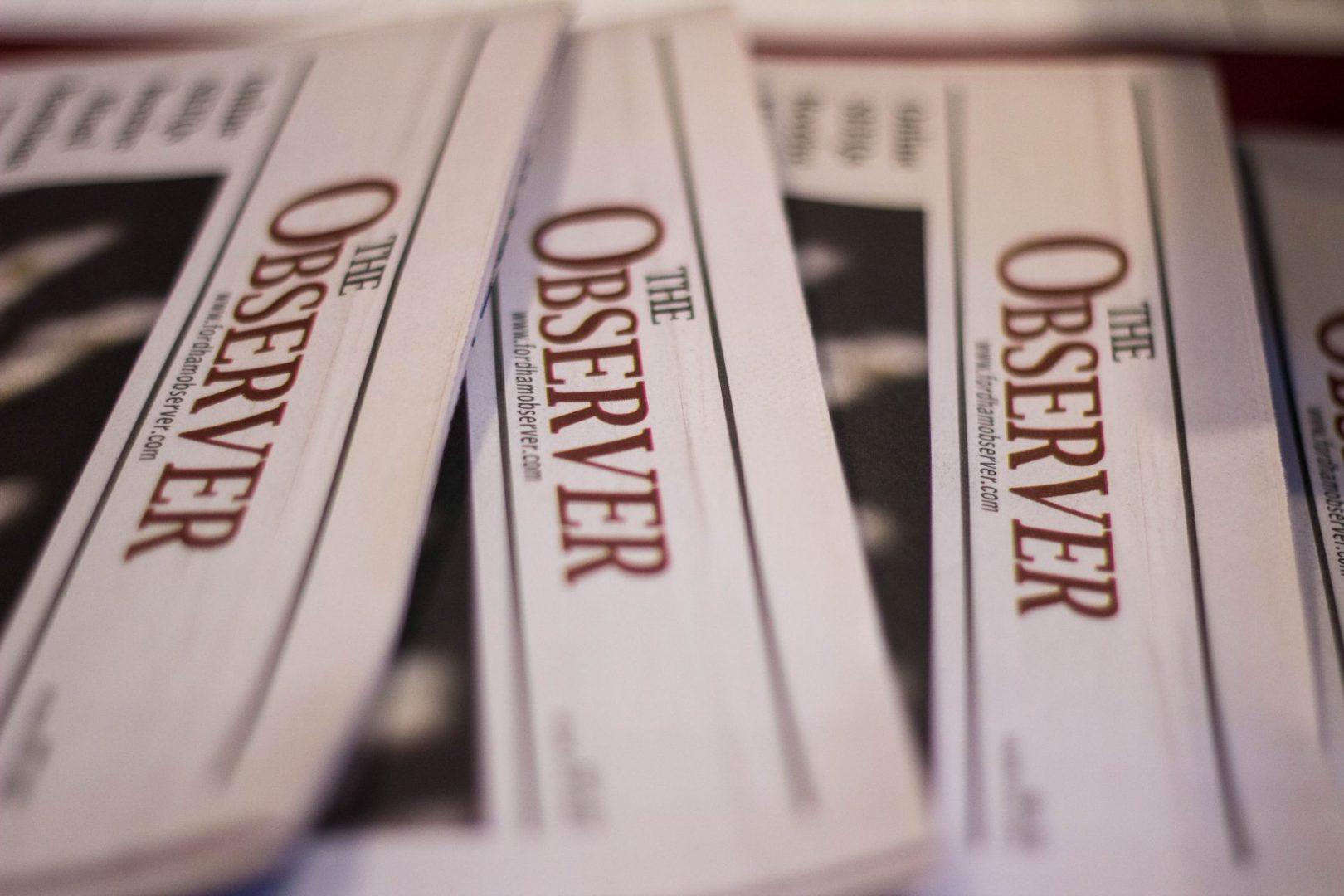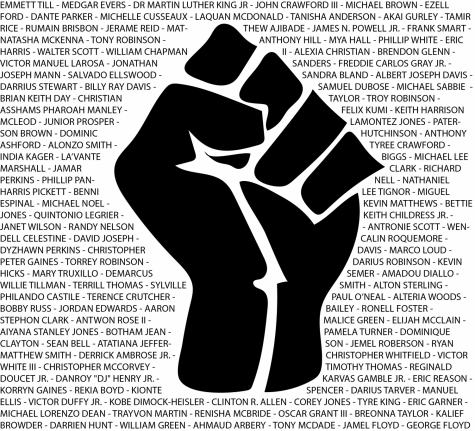A Higher Standard of Justice
Fordham administration needs to commit to enforcing accountability
Dean Eldredge and Director of Residential Life Jenifer Campbell give a Campus Assault and Relationship Education (CARE) presentation at Lincoln Center. While Fordham does have policies and procedures in place for reporting assault and harassment, students say the process has failed to serve them and has left them feeling unsupported.
July 7, 2020
Recently, an opportunity to anonymously discuss experiences of racism, discrimination and harassment on campus has resulted in over 400 posts and counting between two Instagram accounts. They detail a relentless stream of exclusive syllabi, racial profiling and racist slurs, sexual assault, and much more, reminding us that for the white majority of Fordham students and staff, a good look in the mirror is long overdue.
The administration is usually quick to condemn acts of blatant prejudice such as hate symbols posted on campus over the years and always affirms that these incidents do not represent the views of the wider community. However, members of the community continue to demonstrate hatred and prejudice, highlighting the lack of adequate repercussions to deter this behavior. Enforcing such repercussions is something that was curiously absent from the university’s recent statement about addressing racism at Fordham. The pervasiveness of these events also shows that Fordham’s campus culture fails to discourage and prevent hateful beliefs.
People who report incidents are often dismissed or told that they have overreacted. When someone has the courage to share a traumatic experience, at the very least, they are entitled to be heard and acknowledged. Being invalidated by the people in power discourages someone from ever coming forward again, which erodes trust in the university. In order for the university to address a problem, students must be willing to report that problem, but how can they be comfortable doing so if they anticipate that they will not be taken seriously?
When it comes to building trust and credibility, tangible changes to the workings of the system go hand-in-hand with adjusting the mindset of its architects.
For starters, students need more options for reporting bias-related incidents and hate crimes. The instructions on Fordham’s website are to contact the dean of students and/or Public Safety, both of which have a history of violations themselves.
For example, Christopher Rodgers, dean of students at Fordham College at Rose Hill, has been identified by multiple people for alleged racist, biased and insensitive behavior. He was investigated in 2017 for a presentation he gave on Campus Assault and Relationship Education (CARE) and Bias and found by a third party to have done nothing “purposefully insensitive.” However, many students felt offended by the presentation, which framed rape on college campuses as a political issue with two sides to it, rather than an undeniable and atrocious reality of the college experience for far too many people.
No matter the conclusions of an outside law firm, students shared at the time, and have continued to share in hindsight, the fact that they were hurt by Rodgers’ words and actions in that particular case and in others. That has to count for something, regardless of his perceived intentions, and herein lies the crux of the matter. How can Fordham claim to investigate instances of bias and harassment reported by students when they do not take the input of those students to heart? How can Fordham claim to investigate instances of bias and harassment reported by students when they do not take the input of those students to heart?
Listening to students is the first step, but it is not enough. It amounts to nothing if students’ experiences and concerns are not then taken into account and translated into actions, including punishing people, regardless of their role in the university, when necessary.
One thing we need is more people for students to report to. The deans and public safety officers should of course be trained in sensitivity and anti-racism and held accountable for their actions and how they impact students, but in addition, we need separate staff members who are dedicated explicitly to serving the needs of and advocating for the wellbeing of students.
In the case of Title IX violations at Fordham, there is already an office dedicated to the subject, but the Title IX office has still left students feeling unsupported while supposedly working at “enhancing a respectful, diverse, and inclusive work and learning environment.” The office needs to commit to hiring a diverse staff, building a continuous process of training and reflection in what it means to believe and support survivors and seeking input from a wide range of students on how to improve the services that they offer.
Above all, the people who students are expected to report to should actively show that they value students’ safety and happiness and are dedicated to holding everyone in the university directly accountable for their actions.
While it is true that individual people do not reflect the opinions of the whole school, at a certain point, this refrain becomes an excuse for inaction. What does reflect on the school is whether or not its administration is willing to put in the work to enforce a system that cares about all of its constituents.
Leaders of Fordham: If you love this institution, hold it to a higher standard of justice.



















